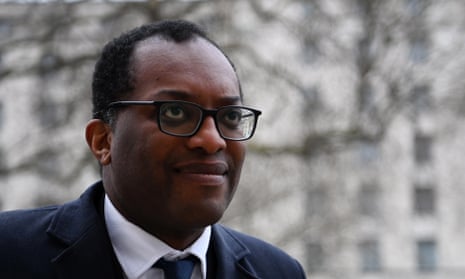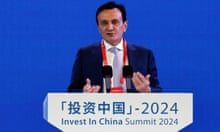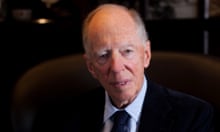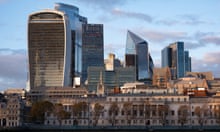Unions have reacted with fury to the prospect of the government scrapping a cap on bankers’ bonuses, as ministers geared up for a return to near-normal politics next week, topped by an emergency mini-budget on Friday.
Kwasi Kwarteng, the chancellor, who will set out plans for tax cuts and give more details about the government’s plans to limit rising energy bills, is also considering whether to shed the legacy of an EU-wide cap on bonuses of twice an employee’s salary, imposed after the 2008 financial crash.
While the cap was intended to curb over-risky practices that helped create the crash, ministers are known to be concerned that the City it at risk of losing out to other financial centres.
According to the Financial Times, Kwarteng wants to abolish the rules as part of what he calls “big bang 2.0”, a post-Brexit deregulation drive to make the City more competitive.
Sources told the paper that Kwarteng wants to boost the City’s competitiveness against New York, Frankfurt, Hong Kong and Paris, with one financier saying an end to the cap was a “clear Brexit dividend. Something you can present as a win.”
It would, however, be a politically perilous move at a time when the bulk of UK households are facing real-terms pay decreases amid 9.9% inflation, as well as notably higher energy bills this winter, despite the government plan to cap increases.
Frances O’Grady, the general secretary of the TUC, said people “are being walloped by soaring prices after the longest and harshest wage squeeze in modern history”. She added: “The chancellor’s No 1 priority should be getting wages rising for everyone – not boosting bumper bonuses for those at the top.”
Sharon Graham, the general secretary of the Unite union, said workers would be “appalled and angry”. She said: “When millions are struggling to feed their families and keep the lights on, the government’s priority appears to be boosting the telephone-number salaries of their friends in the City.”
Andrew Sentance, a member of the Bank of England’s monetary policy committee during and after the financial crisis, said it was a “very bad” time to consider increasing banker’s bonuses.
Speaking on BBC Radio 4’s Today programme on Thursday, Sentance said it risked sending “a rather confused signal” amid inflation squeeze. “To appear to allow bankers to have bigger bonuses at the same time doesn’t look very well timed. There may be some longer-term arguments for pursuing this policy, but I think the timing would be very bad if they did it now,” he said.
The mooted plans come as Kwarteng and Liz Truss prepare to fully set out their economic plan based around lower taxes, reduced regulation and a focus on higher overall economic growth trickling down to all income brackets, as opposed to redistributive policies.
This has been delayed by the mourning period for the Queen, culminating in Monday’s state funeral.
The Commons, which has not sat this week, is scheduled to resume on Wednesday with more MPs swearing allegiance to King Charles, something that is not required but which many wish to do.
Thursday could see details of Truss’s energy price freeze, estimated to cost about £150bn, particularly the still only sketched-out plan to help businesses, as well as news on health. While a draft parliamentary timetable says only that the Commons could sit on Friday, this is expected to be the day for Kwarteng’s “fiscal event”, setting out an initial package of economic policies.
after newsletter promotion
The Commons then goes into recess for the traditional party conference break, and had been due to resume on 17 October. However, MPs will be asked next week to approve an earlier return, on 11 October.
Truss is due to be in New York after the Queen’s funeral for the UN general assembly, returning in time for the mini-budget.
While the new prime minister has seen her political programme sidelined by the death of the Queen, the influx of world leaders before Monday’s funeral will give her the chance to hold talks with some she might not get a chance to see in New York.
Joe Biden, the US president, is among a series of leaders Truss is expected to meet over the weekend in Downing Street and at Chevening, an official country retreat being used while Chequers undergoes maintenance work.
While No 10 insisted such meetings would include talk about the Queen, Truss will also discuss wider issues. A full list of the pre-funeral bilateral chats is due to be released on Friday.










